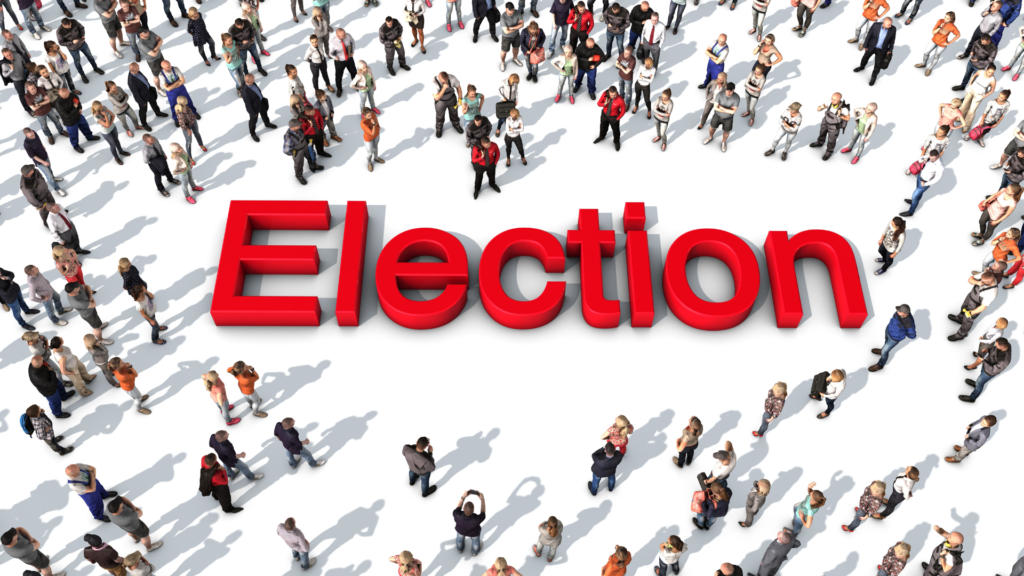Political Scenario Before 2024 General Election In India From Constitutional Perspective
By Sambhav Badkul

Formation of INDIA Party
As the India is a democratic country and elections are approaching let us look at what is going on in politics from the formation of INDIA PARTY to the Supreme Court judgment on Election Commission of India to one nation one election & about a recently constituted constitution bench to examine the validity of electoral bond. Here INDIA refers to Indian National Development Inclusive Alliance by opposition parties to defeat the BJP in 2024 Lok Sabha (LS) election.
Election Commission of India
As the Elections are conducted by Election Commission so let us briefly look at it also. It was mentioned in article 324 of the Indian Constitution as Superintendence, direction and control of elections to be vested in an Election Commission. Supreme Court in March 2023 this year only rule that the post of Chief Election Commissioner (CEC) & Election Commissioner (EC) will be appointed by the President on the advice of panel / body or a committee which include Prime Minister, leader of opposition in Lok Sabha or in absence of it leader of largest party in the opposition in the Lok Sabha & Chief Justice of India. It was ruled in the case of Anoop Baranwal V. Union of India. The government overturn it by introducing the bill that has now already become the act and replaces the Chief Justice of India. Election Commission of India [ECI] on 1982 introduced the electronic voting machine [EVM] on experimental basis in Kerala but the Supreme Court stuck it down. Earlier Election Commission of India consist only Election Commissioner or better to say chief election Commissioner i.e. it was a single member body but by 1989 amendment it became multi member body. CEC & EC has a tenure of 6 year or 65 year which-ever is earlier. Article 324(5) says that Chief Election Commissioner shall not be removed from his office except in like manner and on the like grounds as a Judge of the Supreme Court, however other Election Commissioner can be removed only on the advice of Chief Election Commissioner.
One Nation, One Election
Recently few times back a committee chaired by former President of India Ram Nath Kovind to investigate the holding of simultaneous elections for State Assemblies and the Lok Sabha was form. It was an 8-member commission announced by Pralhad Joshi (minister of parliamentary affairs) other members incl. Mr. N. K. Singh, Mr. Amit Shah, INC leader in LS (lok sabha) Adhir Ranjan Chowdury, Ghulam Nabi Azad, former LS Seceratory General Subhash C. Kashyap, former Central Vigilance Commissioner (CVC) Sanjay Kothari, Harish Salve, one of the famous lawyer was also included in it, but Adhir Ranjan Chowdury, a Congress leader, refused to be a part of it. Special invitee incl. Minister of law & justice; it has 7 reference terms.
Following the implementation of the Constitution on January 26, 1950, the firstever general elections to the Lok Sabha and all State Assemblies were held concurrently in 1951-1952. The practice persisted through the three subsequent Lok Sabha elections until 1967 [1957 – 1962 -1967]. The cycle was disturbed for the first time in 1959, when the Centre invoked Article 356 i.e. state emergency to dismiss the then-Kerala government. The very important precedent related to state emergency was 9 judges bench of SC in S.R. Bommai v. Union of India (AIR 1994 SC 1918) the bench held that the dissolution of State Legislative Assembly by the President of India is subject to approval of both Houses of Parliament and validity of President’s Rule is subject to judicial Review. Assembly elections are currently held concurrently with the Lok Sabha elections in states like Arunachal Pradesh, Sikkim, Andhra Pradesh, and Odisha. If elections were held simultaneously in four states [like of Andhra Pradesh, Arunachal Pradesh, Odisha, and Sikkim] in 2024, there would be no change. The Law Commission of India (LCI), chaired by Justice B. S. Chauhan, issued a draft report in 2018 stating that simultaneous elections are not feasible. The commission also suggested that it be ratified by at least 50% of the states to be effective but in its 170th report in 1999, the LCI, led by Justice B.P. Jeevan Reddy favour simultaneous elections. Currently South Africa, Belgium, Sweden follow this system, now India will be 4th country if implemented. In 2015 Parliamentary Standing Committee on personal grievance law & justice headed by E.M. Sudarsana Natchiappan prepare report name feasibility of holding simultaneous election to house of people & state legislative assembly in 79th report stated that “The Committee does not feel that simultaneous election in every five year cannot be held in near future but slowly it would reach in stages for which tenure of some of the State Legislative Assemblies need to be curtailed or extended. Extension of term of Legislature is not permissible except under proclamation of emergency. But election to Lok Sabha/State Legislative Assemblies can be held six months before under Sections 14 & 15 of the Representation of People Act, 1951.”3 Similarly NITI AYOG in 2017 releases a report on simultaneous election. It is believed that for conducting simultaneous election there will be need to amend article 83, article 85, article 172, article 174, article 356 of the Indian constitution.
Electoral Bond Scheme
The most recent twist come in the election process was the challenging of the electoral bond scheme in Supreme Court, which has form a constitutional bench of 5 Judges to examine its validity. Electoral bond was introduced in union budget of 2017-18 by finance bill 2017 publish in official gazette on 2nd January, 2018. It is an anonymous instrument for giving donation to political parties, it was available only in selected branch of SBI (State Bank of India).
Pros and Cons
As every coin has two sides in similar way there can be both positive and negative views about it. It depend upon the way things are taken, some people might be in favour of it and some may not be. It may be the cost saving procedure but some state government may not be ready for it mainly the non BJP ruled state where disputes mostly arrive, as the central & state government differs, it may be by the way of centrally appointed Governor blocking the bill of the state assemblies or giving assent to it as seen in many states like of Tamil Nadu, Kerala & Punjab etc. where the governor block the bills and elected government are not able to do anything as the constitution do not specify the time limit within which the bill is to be pass by the Governor. Supreme court has many times decided to resolve the issue but till now it was not successful in resolving the dispute therefore there is a need to find the solution for it as every problem has solutions. As the area differ people also differ and their thought process also differ, difficulty always arise in finding the consensus among people but it was not impossible to do anything, government must try its best to find the consensus if it promote the welfare of people as we live in the Democracy where the will of people is supreme, government must do everything keeping in mind the welfare of its people as it was only people who elect them and their welfare should not be sacrificed in anyway and at any cost if it save the tax payers money and nation cost.
Conclusion
In conclusion, the political landscape in India leading up to the 2024 general elections is complex and multifaceted, with various constitutional and legal issues at play. The formation of the INDIA party, the ongoing debates surrounding the Election Commission’s appointment process, the proposal for simultaneous elections across the country, and the controversial electoral bond scheme all highlight the intricate interplay between politics, law, and democratic processes. Amidst these developments, it is crucial for all stakeholders to uphold the principles of transparency, fairness, and adherence to constitutional norms, ensuring that the will of the people is truly reflected in the electoral outcomes. Ultimately, the strength of India’s democracy lies in its ability to navigate these challenges while safeguarding the fundamental rights and freedoms enshrined in its constitution.

About Author
Sambhav Badkul is a law student pursuing a BA LLB degree and CS EXECUTIVE, Mr. Sambhav badkul is also seeking opportunities to further develop his legal skills and gain practical experience in dynamic legal environment. He is eager to contribute his passion for the law and commitment to justice while expanding my knowledge through challenging and rewarding internships.